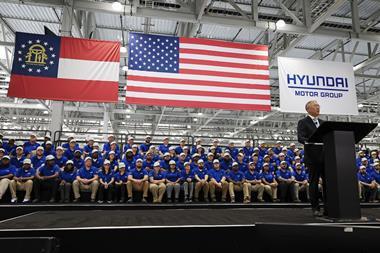 The new private operator of the Turkish port of Derince – Safi Port – has defended its increase in handling fees in the face of widespread criticism from the maritime car carrier sector, saying they represent a combination of previously separate charges, as well changes that have resulted from privatisation.
The new private operator of the Turkish port of Derince – Safi Port – has defended its increase in handling fees in the face of widespread criticism from the maritime car carrier sector, saying they represent a combination of previously separate charges, as well changes that have resulted from privatisation.
However, Safi has since told Automotive Logistics that the increase in port charges covers services that were previously paid for separately and takes into account overtime fees.
“During its state management, customers could only utilise the pier and had to find alternative companies outside of the port to provide additional services, including stevedoring, monitoring, security, shore cranes and any other necessary equipment,” the port operator said in a statement.
Safi added that it was now providing services and equipment omitted by the government and had eliminated overtime fees to ensure more efficient and reliable operations and customer satisfaction.
“These additional services have been added to the port prices,” continued the Safi spokesperson. “As per privatisation regulations, the former tariffs must be applied for one year from the privatisation date. Therefore, there have been no changes to the current port tariff, except for those resulting from the additional services offered by the new management. These services are provided at competitive prices, comparable to other nearby ports.
“Ultimately, expenses paid by the customers for these services remain unchanged,” added the company.
Safi Port's management was also at pains to explain the increase in tariffs relating to pilotage into the port, stating that the tariffs had been applied to all vessels calling at Izmit Gulf ports for years, but that the government, which owned the port until March this year, had not applied the necessary fees in order to attract customers ahead of the port’s privatisation.
“No charges have been added to the berthing/unberthing of vessels, only the entry and exit fees for the Darıca sector [the district in which Derince port lies],” said the Safi spokesperson, adding that the fees were to be charged to vessels calling at the Izmit Gulf ports, but that those operating from inland ports in that region were exempt from the charges.
SUV handling charges
Shipping lines calling at the port have also criticised Safi Port’s request that they sign a backdated waiver on any claims to vehicle damage sustained at the port during loading and unloading. To appease shipping lines, Safi Port offered to reduce SUV handling fees from $50 a unit to $22, the same rate for passenger vehicles. Failure to sign the waiver meant the reduction in fees would not be applied, according to one automotive expert close to the situation.
“Their bargaining tool is to say ‘if you don’t do this we won’t reduce your rate,’” he said.
However, Safi said the backdated waiver related to the difference in handling costs.
“According to our legal records, the customers who paid $50 in SUV handling fees in March, April and May 2015 were asked to sign a waiver stating that they will not claim the difference in fees be returned to them, with the deduction becoming effective only from June onwards,” said the company. “This letter is strictly required by the port management and those who do not provide this letter will not benefit from the deduction.”
Safi said it was eager to grow business at the port of Derince, including for the automotive sector and was building a multi-storey car park for that purpose. This is in addition to an expansion of the current 450,000 sq.m port footprint to 1,200,000 sq.m, and an increase in the number of berths from eight to ten.
“Our aim is to become Turkey’s biggest international port, and thus support Turkey’s economic growth,” affirmed the company.
However, with a number of operators now having moved volumes to the nearby Autoport facility it remains to be seen just how much of that space will be used for automotive volumes.
Safi Port’s parent company, Safi Katı Yakıt Sanayi ve Ticaret, paid the Turkish government $543m to handle operations at the port of Derince for 39 years, commencing in March this year.
Further analysis of the ongoing situation at Derince port will be published as a feature in the coming weeks.

























![Global[1]](https://d3n5uof8vony13.cloudfront.net/Pictures/web/a/d/s/global1_726550.svgz)










